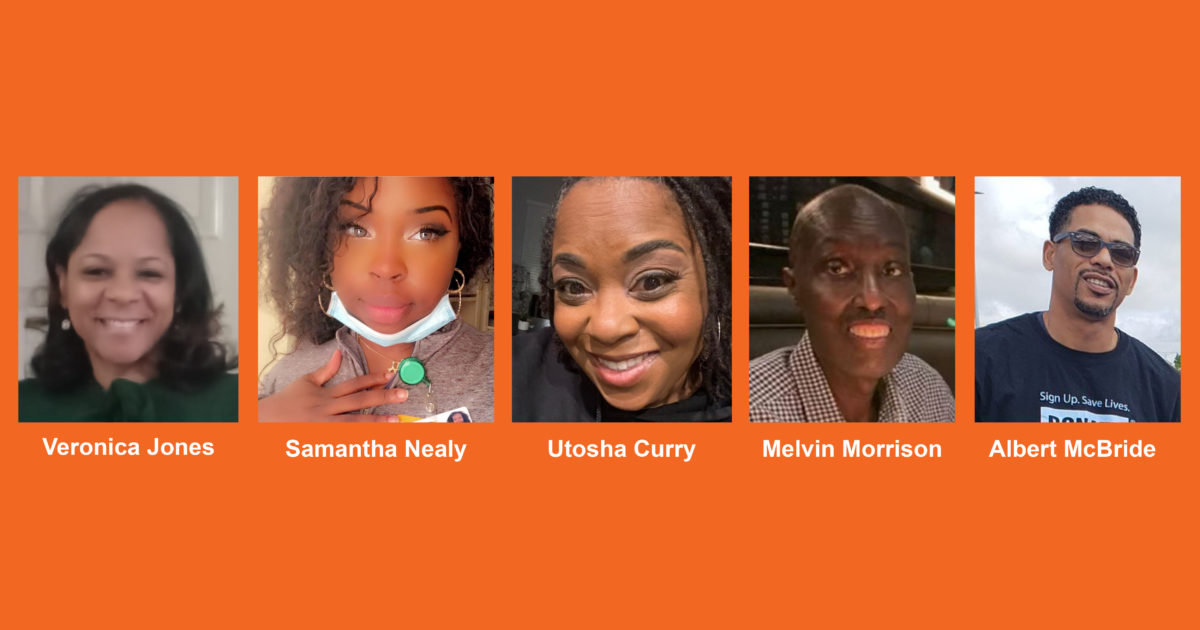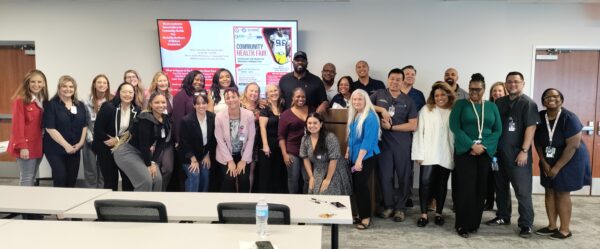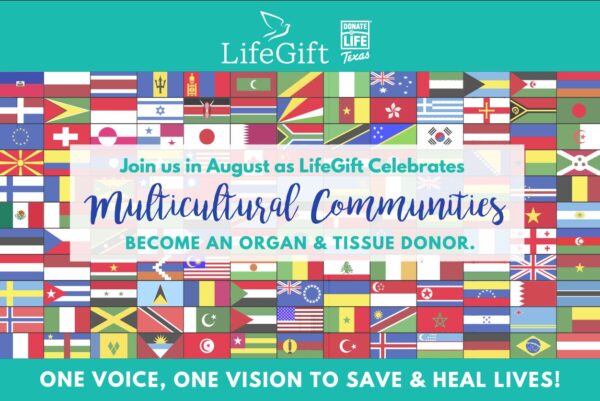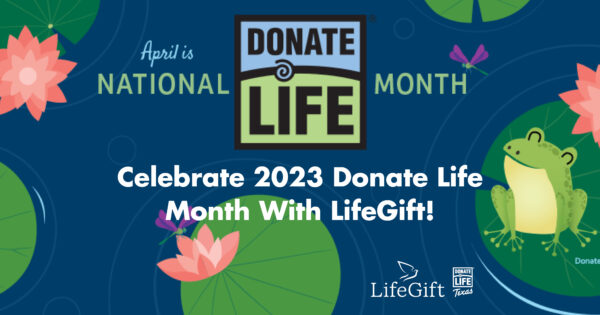Celebrating Black History: Honoring Team Members & Volunteers Who Make a Difference
February 22, 2022
LifeGift is honored to celebrate Black History Month during February. We’re pleased to spotlight LifeGift team members and Ambassadors of Hope volunteers who make such a huge difference for organ, tissue and eye donation in our various communities.
Veronica Jones, quality systems supervisor in Houston, Samantha Nealy, tissue recovery technician in our Lubbock region and Utosha Curry, family care specialist for our Fort Worth region, share what Black History Month means to them as well as how working at LifeGift has affected their lives. LifeGift’s Ambassadors of Hope volunteers, Melvin Morrison and Albert McBride, also share what Black History means in their own words.
“Black History to me is summed up in one phrase ‘equality for all,’” emphasizes Veronica. “Working at LifeGift is rather difficult to briefly sum up,” adds Veronica. “But I can say there are cons and pros including, con: I over analyze everything that happens at home because I relate it to the circumstances I read daily in medical records, pro: On the other hand, working for LifeGift positively impacts my life because I view it as being a part of the solution to rendering longer life spans to those that receive the gifts of tissue and organ donations. No one person’s job at LifeGift is too small. All team members play a major role in ensuring the blessings our families receive are safe.”
“Black History Month means the world to me simply because representation matters!” says Samantha. “Growing up, I subconsciously prevented myself from paths I didn’t believe I was capable of achieving just because I didn’t see anyone like me doing it. February always brings daily history lessons about inventors, poets, scholars, trendsetters, etc. These stories remind me that being the first is okay and my potential should not be limited by what I see.”
“This year I’ve witnessed a friend receive a tissue donation and a family member receive a life-saving organ transplant,” adds Samantha. “LifeGift has opened many doors I previously thought were inaccessible while simultaneously restoring life to so many others. I feel blessed to be able to do what I do.”
“As a child growing up in public schools, the only time I learned about and celebrated the creativity, strength and individuality of people that looked like me, was during Black History Month,” shares Utosha. “So as a child, I deduced that it was the only time and space that ‘blackness’ should be celebrated. It’s something that should always be celebrated, recognized and admired. I’m proud to be a part of such a strong lineage!”
“I feel representation is very important and closes gaps in terms of education,” adds Utosha. “I’m honored to be in a space to be able to educate and genuinely support, not only families that look like me but all families, in terms of organ and tissue donation. I’m always so proud to tell others I’m allowed to sit in the space with grieving families and offer them a little bit of hope.”
“Black History Month as an Ambassador of Hope volunteer and recipient means that as an organ recipient, I was given the opportunity to live and share my life-saving story and hopefully convince others like myself to be donors,” shares Melvin. “It’s not only important for all to give but especially African Americans since we represent such low donation numbers in any community.”
“I was born in the Philippines and adopted and later raised in Lubbock, Texas,” shares Albert. “Because of this transition at such an early age, I didn’t always understand who I really was as a kid. My parents taught me to be proud of who I was no matter what! They also taught me about civil rights and the many amazing activists here in Lubbock and across the country. I always thought it was neat that several local activists were members of our church, and I took that to heart. This helped me tremendously in life and helped me excel. “
“This self-awareness also helped guide me in sports,” adds Albert. “After college, I had the good fortune to have Major League Baseball scouts visiting with me and even had the opportunity to pitch for the Chicago Cubs’ minor league team. I knew I had a voice and many abilities to be great in all aspects of life if I believed in myself.”
Please visit LifeGift’s Facebook page as we spotlight Black History Month in February with posts featuring a variety of individuals including Dr. Velma Scantlebury who became the country’s first Black female transplant surgeon in 1989. She has since performed more than 2,000 life-saving surgeries and now dedicates her time to increasing donation in the Black community through education and awareness. Thank you, Dr. Scantlebury!



